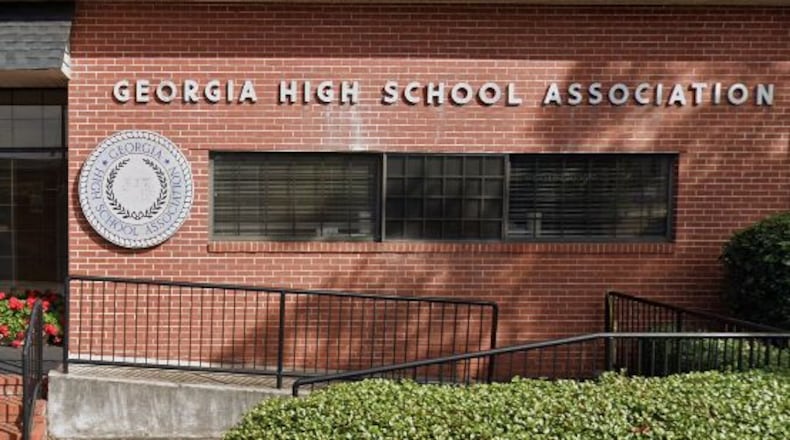The GHSA’s board of trustees will discuss instant replay to review officials calls, minimum seating requirements for football playoff games and NIL deals Wednesday at the GHSA’s Thomaston office.
Only the seating requirements can come to a vote, but discussion on the other issues could set the stage for rule changes beginning in the 2023-24 academic year.
Instant replay became a hot topic following the Class 3A football championship game Dec. 10 at Georgia State’s Center Parc Stadium. Sandy Creek scored the winning touchdown in a 21-17 victory over Cedar Grove on a third-down run that video replay from the GPB Sports telecast showed fell short of the goal line.
GHSA rules don’t allow video evidence to overturn calls, but after the Cedar Grove-Sandy Creek game, several GHSA trustees told the AJC that the GHSA needed to consider employing replay.
“We almost have to now,’’ said Jasper Jewell, athletic director for Atlanta Public Schools. “We have no choice but to have it for championship events, at least.’’
Monday’s discussion likely would involve logistics of implementation.
“For example, is instant replay used only in the finals?” GHSA board of trustees president Jim Finch said last month. “Would this be used for all sports? Whose video evidence? GPB’s camera angles? Perhaps begin with football, since it has the most sophisticated camera coverage, and see how it works. Another issue would be training for officials. And I’m sure there are many other factors I have failed to mention.”
The minimum seating requirement also became an issue last football season, when three semifinal games were moved to neutral sites because the designated home teams – Roswell, Milton and Hughes, all from Fulton County – didn’t have stadiums large enough to meet GHSA guidelines. Fulton County Schools athletic director Steven Craft, also a GHSA board member, is proposing a change.
The GHSA requires a minimum of 6,000 permanent seats for semifinals in classes 7A and 6A, 4,000 in 5A and 4A, 3,000 in 3A, 2,500 in 2A and 2,000 in A.
NIL deals – money paid to athletes for their name, image and likeness – are legal in college sports, but the GHSA is among 16 state high school associations that ban them. They are also outlawed in Florida, Alabama and South Carolina. They are legal in 25 states and under consideration in nine, according to Opendorse, a company that educates athletes in navigating NIL deals.
The GHSA’s current bylaw says student athletes can lose eligibility by ‘’capitalizing on athletic fame by receiving money or gifts with monetary value except college scholarships.”
Two Florida athletes have sued the the Florida High School Athletic Association for the right to earn NIL money while playing for their high school teams.
About the Author
The Latest
Featured


